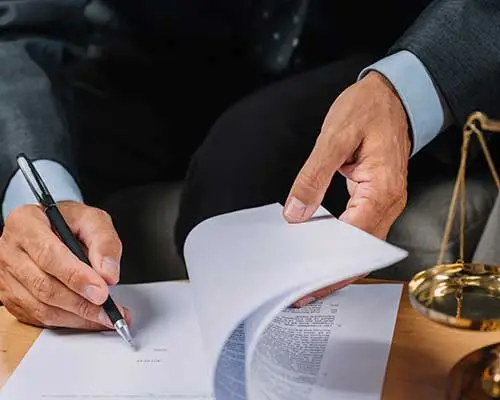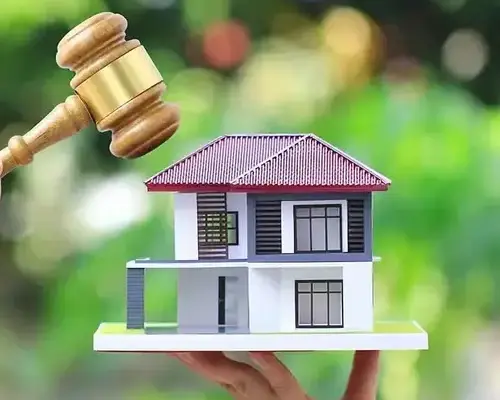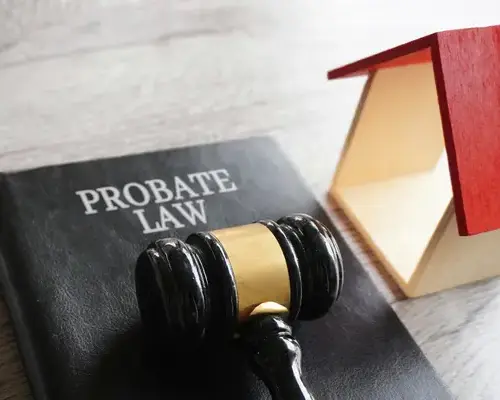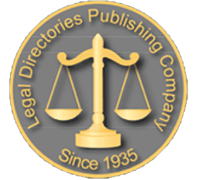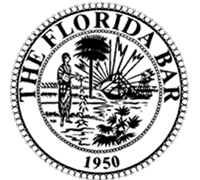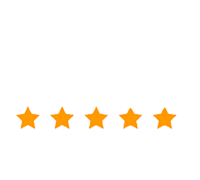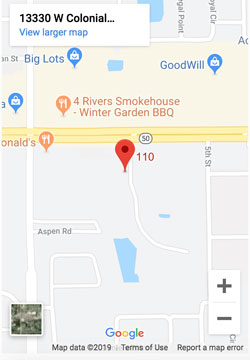What Is a Civil Suit Lawyers Free Consultation?
Many people think a legal consultation is just about a lawyer evaluating their case. But it’s really a two-way interview. You are also deciding if that attorney is the right person to handle your important legal matter. To make the right choice, you need to be prepared to ask the right questions. This guide will equip you with the knowledge to effectively interview a potential lawyer. We’ll cover what to look for in their experience, communication style, and proposed strategy. Your civil suit lawyers free consultation is your chance to take control and find a true advocate for your case, not just a name on a letterhead.
Key Takeaways
- Use the free consultation for strategic clarity: This initial meeting is your no-obligation opportunity to understand the strengths and weaknesses of your case and get a professional opinion on the best path forward.
- Come prepared to guide the conversation: Maximize your time by organizing your documents, creating a timeline of events, and bringing a list of specific questions about the attorney’s experience, strategy, and fees.
- Demand full transparency on costs: A reputable lawyer will be upfront about their retainer, billing structure, and potential court expenses, giving you the financial confidence to proceed without worrying about hidden fees.
What is a Free Legal Consultation?
When you’re facing a legal issue, like a contract dispute or a real estate problem, the path forward can feel unclear. That’s where a free legal consultation comes in. Think of it as an introductory meeting with a lawyer to discuss your situation without any financial commitment. It’s a conversation where you can share the details of your case, and the attorney can give you an initial assessment of your legal options.
This first meeting is designed to be a low-pressure way for both you and the lawyer to see if you’re a good fit for each other. You get to learn about the firm’s approach and expertise, and they get a basic understanding of your case to determine if they can help. It’s a crucial first step that provides clarity and helps you decide on your next move with confidence. Our team at Legal Counsel P.A. offers these consultations to help Floridians understand their rights and potential legal strategies.
Why It’s Your Best First Step
Choosing a lawyer is a significant decision. You’re not just hiring someone for their legal knowledge; you’re trusting them with a matter that is important to your business or personal life. A free consultation is your opportunity to gauge this crucial relationship. It allows you to meet a potential attorney face-to-face, understand their communication style, and see if you feel comfortable with them. This connection can make a real difference in how your case proceeds. It’s also a chance to get a professional opinion on your situation without any obligation, helping you understand the potential strengths and weaknesses of your case from an experienced perspective. You can learn more about our attorneys and their backgrounds before you even schedule a call.
What to Expect During the Meeting
During your consultation, the lawyer will listen to your story and ask questions to get a clear picture of the situation. Be prepared to share all the relevant details. It’s a great idea to write down a summary of events beforehand so you don’t forget anything important. You should also prepare a few questions of your own. While the attorney won’t be able to map out every single detail of a complex case in one meeting, they will provide enough information to help you understand your options. The goal is for you to leave with a better sense of your legal standing and a clear idea of whether you want to hire that lawyer to represent you in your business law matter.
Is Your Conversation Confidential?
Yes, your conversation during a free consultation is confidential. The principle of attorney-client privilege generally extends to these initial meetings, even if you don’t end up hiring the lawyer. This means you can speak openly and honestly about your situation without fear that the details will be shared. Lawyers are bound by ethical obligations to protect the information you provide. The purpose of the meeting is to genuinely help you understand your legal position and to let you know about the firm’s services. This confidentiality is essential for building the trust needed to have a productive and honest discussion about your case.
Common Myths vs. Reality
Many people have misconceptions about free consultations. One common myth is that it’s just a high-pressure sales pitch. In reality, a reputable law firm uses this meeting as a genuine opportunity to assess your case and explain your legal options. Another myth is that you’ll walk away with a complete solution to your problem. The reality is that the consultation provides a strategic overview and a professional opinion on whether you have a case worth pursuing. If you and the attorney agree to move forward, that’s when the in-depth work begins. The consultation is the starting point, not the finish line. It’s your chance to get informed before making any commitments.
How to Find the Right Lawyer for Your Civil Suit
Finding the right lawyer can feel like the biggest hurdle when you’re facing a legal challenge. But with a clear approach, you can find an attorney who not only understands your case but also fits your needs. Think of this as a hiring process where you’re in the driver’s seat. The goal is to find a professional you can trust to guide you through your civil suit, and it starts with knowing where to look and what to ask.
Where to Start Your Search
Your search for the right lawyer often begins with your personal network. Ask friends, family, or business colleagues for recommendations. A referral from someone you trust is a powerful starting point. You can also consult other professionals you work with, like your accountant, who may have connections in the legal community. Beyond personal referrals, your state’s bar association is an excellent resource. The Florida Bar, for example, offers a lawyer referral service that can connect you with attorneys who specialize in your specific area of need, whether it’s business law or a real estate dispute.
Using Legal Directories
Online legal directories like Avvo, FindLaw, and Martindale-Hubbell are essentially search engines for attorneys. The key to using them effectively is to be specific. Instead of searching for a “lawyer in Orlando,” try using more descriptive keywords that match your situation, such as “commercial lease dispute attorney” or “probate lawyer in Florida.” This will narrow the results to lawyers who have experience with cases like yours. These directories often include profiles with the lawyer’s background, practice areas, and sometimes even reviews from past clients, giving you a solid list of potential candidates to research further.
How to Vet Their Credentials
Once you have a shortlist of potential lawyers, it’s time to do some homework. Start by visiting their firm’s website to learn about their experience and the types of cases they handle. Look at their individual profiles on the attorneys page. Next, verify their credentials with The Florida Bar. You can use the Find a Lawyer tool on the Bar’s website to confirm they are licensed and in good standing. When you meet for an initial consultation, don’t be shy about asking direct questions about their experience with similar cases. This is also the time to discuss costs. The lawyer should be able to give you an estimate and explain how they charge for their work.
What Past Clients Are Saying
Client reviews and testimonials offer a glimpse into what it’s like to work with a particular lawyer or firm. While you might find glowing testimonials on the firm’s website, it’s also wise to check independent review sites like Google and Avvo for a more balanced perspective. Look for patterns in the feedback. Are clients consistently praising the lawyer’s communication skills and professionalism? Or are there recurring complaints about unreturned phone calls? A single negative review isn’t necessarily a deal-breaker, but a consistent theme can be a red flag. Use this feedback to help you prepare questions for your free consultation.
How to Prepare for Your Consultation
Walking into a lawyer’s office can feel intimidating, but a little preparation can make a world of difference. Your initial consultation is a critical first step. It’s your chance to share your story and the attorney’s chance to understand the core issues of your case. By coming prepared, you make the most of this time, allowing the attorney to give you a more accurate assessment of your situation and potential next steps.
Think of it as a productive working session. The more organized you are, the more quickly your potential lawyer can get to the heart of the matter. This isn’t about doing their job for them; it’s about giving them the tools they need to help you effectively from the very beginning. A well-prepared client often gets clearer answers and a better sense of the path forward. Taking an hour or so to get your thoughts and documents in order will help you feel more confident and in control during the meeting.
Gather Your Documents
The first step is to collect every piece of paper and digital file related to your case. Documents provide the factual backbone of your story. For a business law issue, this could mean contracts, corporate records, invoices, or relevant emails. If you’re dealing with a real estate matter, gather your lease, purchase agreement, deed, or any correspondence with landlords or tenants. For estate planning or probate, bring existing wills, trust documents, and a list of assets. Don’t worry about filtering anything out—bring everything you think might be relevant. It’s always better for the attorney to have too much information than not enough.
Organize Your Evidence
Once you have all your documents, take a few minutes to put them in order. You don’t need a complicated filing system; simply arranging them by date is often the most helpful approach. This creates a logical flow that makes it easier for the attorney to follow along as you explain what happened. If you have digital evidence like emails or text messages, consider printing them out and adding them to your file in chronological order. A little organization goes a long way in presenting a clear and compelling picture of your situation, saving valuable time during your consultation.
Create a Clear Timeline
Before your meeting, jot down a simple timeline of events. This is one of the most effective tools you can bring to a consultation. Start from the beginning and list key dates and what occurred on each one. For example: “January 15: Signed the contract. February 1: First payment was due. February 5: Notified the other party of non-payment.” This summary helps you tell your story clearly and ensures you don’t forget any critical details. It also gives the attorney a quick, high-level overview of the situation, allowing them to ask more targeted and relevant questions right away.
Prepare Your List of Questions
Your consultation is a two-way conversation. It’s just as much about you interviewing the attorney as it is about them evaluating your case. Come prepared with a written list of questions. This ensures you get the information you need to make an informed decision. You might ask about their experience with similar cases, the potential outcomes you could face, their proposed strategy, and how their fees are structured. Having your questions ready shows you’re serious and helps you compare different attorneys if you meet with more than one. You can even look up the firm’s attorneys beforehand to ask more specific questions.
What Happens During the Meeting?
Think of your first consultation as a two-way interview. While the attorney is getting a handle on your situation, you’re also getting a feel for their expertise and whether they’re the right fit for you. This meeting is your chance to lay out the facts, ask pressing questions, and understand the potential road ahead. A good lawyer will use this time to listen carefully, assess the basic merits of your case, and give you a straightforward overview of what to expect.
The goal isn’t to solve your entire legal problem in one hour. Instead, it’s about gaining clarity. You should walk away with a better understanding of your legal standing, the potential steps involved in pursuing your case, and a clear picture of the law firm’s communication style and fee structure. It’s a foundational conversation that sets the stage for the entire legal process, giving both you and the attorney the information needed to decide on the next steps. This initial discussion is often the most important one you’ll have.
The Lawyer’s First Look at Your Case
This is your opportunity to tell your story. You’ll present the main facts of your situation, and the attorney will listen to understand the core issues. They will likely ask specific questions to fill in any gaps and identify the key legal principles at play. Bring any documents you’ve gathered, as this gives them a tangible starting point. The lawyer’s goal here is to make an initial assessment: Do you have a valid legal claim or defense? Does your issue fall within their practice areas? This part of the conversation is a high-level overview, not a deep investigation, but it’s crucial for determining if and how they can help you.
Exploring Your Legal Options
Once the attorney has a basic grasp of your case, they will outline your potential legal options. This isn’t about making promises or guaranteeing a specific outcome. Instead, it’s an honest discussion about the possible paths you could take. For example, in a business dispute, your options might range from sending a formal demand letter to negotiating a settlement or filing a lawsuit. The attorney will explain the general pros and cons of each route, giving you a realistic framework for what lies ahead. A free consultation is a valuable first step to understanding your legal situation and the choices available to you.
Breaking Down the Fee Structure
Talking about money can be uncomfortable, but it’s one of the most important parts of the consultation. The attorney should be upfront about how they charge for their services. At your first meeting, the lawyer should be able to estimate the potential costs and explain the method they use for billing. This could be an hourly rate, a flat fee for a specific service, or a contingency fee where they are paid a percentage of the settlement. This is your time to ask questions and make sure you fully understand the financial commitment before you agree to anything. You can always contact us to discuss your specific needs.
Outlining a Potential Strategy
While it’s too early to map out every detail, the attorney can provide a high-level sketch of a potential strategy. Based on your story and goals, they might suggest an initial course of action. This could sound something like, “First, we would gather all the relevant documents and interview key witnesses. From there, we would draft a complaint to file with the court.” This overview helps you understand the lawyer’s thought process and see how they approach problems. It shows you that they are already thinking strategically about your case and gives you confidence in the attorneys who would be handling it.
Making the Most of Your Time
To get the most out of your consultation, a little preparation goes a long way. Come with your documents organized and a list of questions ready. While the lawyer won’t get into every minor detail, they can provide enough information to help you decide if you want to hire them. Be ready to answer questions honestly and provide a clear, chronological account of events. Taking notes can also help you remember key details and advice later on. Your active participation ensures you leave the meeting feeling informed and confident about your next move, especially in complex areas like real estate law.
Key Questions to Ask a Potential Lawyer
Your initial consultation is more than just a chance to tell your story; it’s a two-way interview. You’re evaluating whether the attorney is the right partner for you, just as they’re assessing your case. Walking in with a prepared list of questions helps you take control of the conversation and gather the information you need to make a confident decision. Think of this as your opportunity to understand their expertise, working style, and how they would approach your specific situation. A good lawyer will welcome your questions and provide clear, direct answers.
Questions About Their Experience
Experience is more than just the number of years a lawyer has been practicing. You need someone with experience relevant to your specific legal issue. A fantastic real estate lawyer might not be the best fit for a complex business dispute. Be direct and ask about their background with cases like yours. Have they handled similar situations in your county? Are they familiar with the local courts and opposing counsel you might face? Understanding the depth of their relevant experience will give you a clear picture of how well-equipped they are to handle the nuances of your case and the specific practice areas they specialize in.
Questions About Case Strategy
While an attorney can’t predict the future or give you a guaranteed outcome in a 30-minute meeting, they should be able to outline a potential path forward. Ask them for their initial thoughts on your case. What are the strengths and weaknesses they see? What would the first steps look like if you were to hire them? A clear and logical response shows they have a grasp of the situation and can think strategically. You’re not looking for a detailed battle plan, but you should leave the meeting with a general understanding of their approach and the legal options available to you.
Questions About Their Communication Style
A strong attorney-client relationship is built on clear and consistent communication. You need to feel comfortable with the person you’ll be working with, sometimes on sensitive and stressful matters. Ask how they typically keep clients updated on case progress. Will you be communicating directly with them or with a paralegal? What’s the best way to reach them, and how quickly can you expect a response? Finding a lawyer whose communication style matches your expectations is crucial for a positive and productive relationship. It helps to know the attorneys at the firm and feel confident in their ability to keep you informed.
Questions About Costs and Fees
Don’t be shy about discussing money. It’s essential to have a transparent conversation about legal fees from the very beginning to avoid surprises later on. Ask the lawyer to explain their fee structure—do they charge an hourly rate, a flat fee, or work on contingency? Inquire about retainers and what that initial payment covers. You should also ask about other potential costs, such as court filing fees or expert witness expenses. A reputable attorney will be upfront about their billing practices and happy to answer any questions you have, ensuring you have a complete financial picture before moving forward.
Questions About Their Track Record
You want an attorney who has a history of achieving favorable outcomes for their clients. While past performance doesn’t guarantee future results, it’s a strong indicator of their competence and dedication. You can ask about their success rate in cases similar to yours or if they can provide examples of how they’ve helped other clients in your position (without breaking confidentiality, of course). This isn’t about asking for a win-loss record but about gaining confidence in their ability to effectively represent your interests and fight for the best possible result on your behalf.
Understand the Costs Involved
While your initial consultation may be free, moving forward with a civil suit involves several costs. It’s smart to have a clear picture of the financial side of things from the very beginning. A good attorney will be transparent about their fees and any other expenses you can expect along the way. This conversation is a key part of your first meeting, ensuring there are no surprises as you proceed with your case.
What is a Retainer Agreement?
Think of a retainer agreement as a formal contract between you and your attorney. It clearly lays out the payment structure and the scope of the legal services they’ll provide. Often, you’ll pay a retainer fee upfront, which is like a down payment that the lawyer will bill their time against. During your consultation, the attorney should give you an estimate of the total cost of your case. This agreement ensures everyone is on the same page before any business litigation work begins, protecting both you and the law firm.
Factoring in Court Fees
Beyond your attorney’s fees, there are standard court costs you’ll need to cover. To simply start a civil lawsuit in Florida, you have to pay a filing fee, which is a necessary expense to get your case officially on the court’s docket. These initial fees can range from around $370 to $450. It’s a good idea to budget for these administrative costs from the start, as they are a fundamental part of the legal process. Your lawyer can provide a precise breakdown of the fees and expenses specific to your case and county.
Potential Additional Expenses
As your case progresses, other costs might come up. These can include fees for copying documents, paying for depositions, or hiring expert witnesses to testify on your behalf. For example, a complex real estate law case might require an appraiser or surveyor to provide expert testimony. Some lawyers may ask you to pay these costs as they arise, while others might add them to your final bill. Be sure to ask how these potential expenses are handled so you can plan accordingly.
How Payment Structures Work
Attorneys use a few different methods for billing. The most common is an hourly rate, where you are charged a set amount for each hour the lawyer spends on your case. Another option is a flat fee, which is a single, predetermined price for a specific service. Flat fees are often used for more routine and predictable legal work, such as drafting a will or handling an uncontested estate planning matter. Your attorney will explain which structure makes the most sense for your situation.
Are There Hidden Costs?
No one likes financial surprises, especially during a stressful legal issue. While some firms charge for an initial consultation, we believe your first conversation with us should be free. This allows you to understand your options without any upfront commitment. To avoid any “hidden” costs, make it a point to ask your potential lawyer for a complete list of all possible fees and expenses. A trustworthy attorney will be upfront about everything. When you’re ready for a transparent conversation about your case, feel free to contact us.
What to Do After the Consultation
Once you walk out of the lawyer’s office or hang up the phone, you might feel a sense of relief, but the process isn’t over yet. The consultation is your chance to gather information; now, you have to use that information to make a thoughtful decision. This is a critical moment where you decide who you’ll trust to handle your legal matter. Taking a structured approach can help you move forward with confidence, ensuring you choose the right legal partner for your specific needs. It’s not just about who has the most impressive credentials, but about who you feel comfortable working with and who has a clear plan for your case.
Evaluate Your Options
Take a moment to breathe and process everything you just heard. A free consultation is a fantastic first step to understanding your legal situation without any initial financial commitment. Think back on the meeting. Did the attorney explain things in a way you could understand? Did you feel heard and respected? Consider their experience with cases like yours and whether their proposed strategy makes sense to you. If you’ve met with more than one lawyer, compare your notes. It’s not always about finding the cheapest option, but about finding the best fit for your personality and your case.
The Follow-Up Process
A professional attorney will have outlined the next steps, including their fee structure. During your meeting, the lawyer should have estimated the total cost and explained how they charge for their work, whether it’s an hourly rate, a flat fee, or a contingency basis. You should expect to receive a follow-up email or a formal engagement letter that details these costs and the scope of their services. Review this document carefully. If you have any questions, don’t hesitate to reach out for clarification. Their responsiveness to your follow-up questions can tell you a lot about what it will be like to work with them.
Get Your Paperwork in Order
Whether you’ve decided to hire the attorney or are still weighing your options, it’s smart to get organized. The lawyer likely mentioned specific documents they’ll need to proceed with your case. Start gathering these items now. This could include contracts, emails, photos, or any other evidence related to your civil suit. It’s helpful to continue the practice of writing down notes so you don’t forget any important details. Having all your paperwork in one place means you’ll be ready to hit the ground running as soon as you sign the engagement letter, saving you time and stress later on.
How to Make the Right Choice
Ultimately, choosing a lawyer is a personal decision. You’ve reviewed their credentials, understood their strategy, and considered the costs. Now, trust your gut. You need an advocate you can communicate with openly and who you believe will fight for your best interests. Revisit the questions you prepared and see if they were answered to your satisfaction. You should feel confident in their ability to handle your specific legal challenges. When you find an attorney who checks all the boxes and makes you feel at ease, you’ll know you’ve made the right choice.
Related Articles
- When to Hire a Business Litigation Attorney
- When to Hire a Probate Litigation Attorney
- How to Find the #1 Business Attorney Near You
Frequently Asked Questions
What’s the single most important thing to do before a consultation? The best thing you can do is organize your story. Before the meeting, gather every document related to your case—contracts, emails, invoices—and arrange them by date. It also helps to write down a simple timeline of key events. This preparation allows the attorney to quickly understand your situation and makes your time together much more productive.
Is a free consultation just a sales pitch? Not at all. A reputable law firm uses this meeting as a genuine opportunity to assess your case and explain your legal options. Think of it as a two-way interview. It’s your chance to get a professional opinion and see if you feel comfortable with the attorney, all without any pressure or financial commitment.
How do I know if I’ve found the ‘right’ lawyer for me? The right lawyer has direct experience with cases like yours and can outline a strategy that makes sense to you. Beyond credentials, it’s about finding a good fit. Pay attention to their communication style and whether you feel heard. You need to trust that they will keep you informed and genuinely advocate for your best interests.
Will the lawyer tell me if I have a good case during the first meeting? In a first meeting, an attorney can give you an initial assessment of your case’s strengths and weaknesses, but they can’t guarantee a specific outcome. The goal is to provide you with a clear understanding of your legal options and the potential paths forward. You’ll get a professional opinion on whether your case is worth pursuing, not a definitive prediction.
What costs are involved beyond the lawyer’s fee? Besides the attorney’s fees, which might be hourly or a flat rate, there are other standard costs. You can expect to pay court filing fees to officially begin a lawsuit. As the case progresses, other expenses might arise for things like hiring expert witnesses or paying for deposition transcripts. Your potential attorney should be able to give you a clear breakdown of these possible costs.

